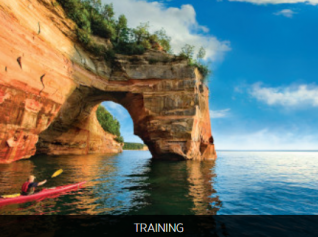Ethics and tourism take centre stage

The Ethics Word by Catherine Mack
Ethical travel writer Catherine Mack went to Madrid for Vision to find out the tourism politicians take.
Ethics is a word I have always been encouraged to avoid when writing about sustainable tourism. It is one of those words which makes people nervous, having seen many company directors, tourist board executives and travel PRs turn a funny colour when you mention the E Word. Few even know of the existence of the World Tourism Organisation’s (WTO) Global Code of Ethics for Tourism, endorsed by the UN in 2001 and publicly available on the UN website (http://tinyurl.com/6c3sqvh. Ten years have passed since then and yet last week saw the first ever International Congress on Ethics and Tourism, organised by UNWTO, in an attempt to get the E-message out there again. Or more likely, deal with the fact that ten years later most people in the tourism industry are still not prepared to incorporate ethics into the core of their business practices. Ten years of denial is a long time, so was a day and a half of presentations and debate going to convince those with the purse strings and policy documents to feel the fear and do it anyway?
Joan Mesquida, Secretary General for Tourism and Domestic Trade of Spain brought everyone quickly to the point at the opening ceremony, warning governments and ‘big operations’ that, in these hardened times “a race for figures to the dearth of quality will benefit nobody. More ethics mean more development”. Admitting that The Code of Ethics had, in the past, been accused of just being a marketing ploy, now was the time to “bring principles into practice”, adding that “People talk about Fairtrade, but shouldn’t we talk about Fair Tourism?”
Pedro Ortún, Director, DG Enterprise, European Commission was quick to point out the actions taken towards ethical developments within the Commission, such as the EDEN or European Destinations of Excellence awards which this year celebrates successful rehabilitations of former industrial facilities. Having seen the success of its Irish winner this year in situ, the Great Western Greenway, a walking and cycling trail following a disused railway line through some of County Mayo’s most stunning land and seascapes, I was able to recognise the importance of the EU promoting sustainable tourism projects of this calibre.
Ortún also promoted the Commission’s Calypso Project, a social tourism venture inspired by the Code of Ethics which aims to encourage and fund out of season tourism by making holidays more accessible for four specific groups of tourists: senior citizens, young people, disabled and low income. Set up in 2009 it also aims to strengthen the idea of European citizenship. It was at this point that I craved some feedback from people working at grassroots level to tell us whether these projects are proffering the desired results for hosts and guests alike.

Centre stage throughout much of the event was Taleb Rifai, Secretary General of UNWTO. As the generous and wise host of this event, he was clearly someone who never shies away from the Ethics word, and was keen to show that ethics in tourism had somehow lost their way over the last ten years, due perhaps to the phenomenal growth of the industry. For Rifai, the answer was simple: “It’s all about people, and if we do not keep that in mind and lose focus of what this is all about, this [travel] becomes a meaningless human activity”. He invited delegates to “discuss the issues frankly and openly” in order to avoid us creating “irreversible damage”. Reminding us that “The development of tourism belongs to the people of a country” he encouraged representatives of the tourism industry to “assume the high moral grounds and give an example to other sectors on how we will build and forge a better and more promising world for the generations to come”. You can see my video of his speech on Youtube.
These inspiring words had us on the edge of our seats waiting for the ‘people’ to talk, but sadly the day continued with more high level dignitaries, academics and Ministers who, despite embracing the principles being discussed, gave few examples of actual change within the tourism industry over the last ten years.
Those leading the field in terms of actions speaking louder than words included Freddy Ehlers, Minister of Tourism of Ecuador who told us that young people have no faith in organisations like the UN, nor do they believe that democracy and justice exist in the world, with Ehlers brave enough to admit “I have seen that sometimes this is the case. There is a difference between what people say and what they do, and the problem is getting worse”. At this some people shifted nervously in their seats, but many more people cheered in support. There are few Ministers of Tourism around the world who, like Ehlers, would admit that “Tourism pollutes. Nobody is quoting the figures on this and we need a White Paper on tourism’s environmental footprint”. Not letting human behaviour off the hook either, he added “The problem lies in human greed. Greed rules the world, and up until recently the European and US model was sold to us as the one to follow”.
Quick to show that his words were being acted upon, he announced that four days previously the President of Ecuador banned all casinos and gambling houses in Ecuador, and has also limited the consumption of alcohol at certain times of the day, both of which will have a big impact on tourism. And with 200 indigenous communities hosting tourists in Ecuador, he is intent on promoting tourism with a conscience (not words you hear during too many Ministerial speeches) concluding that “If we don’t change, we won’t change the world”.
Kathleen Speake, Executive Director of ECPAT International was also one to lay her ethical cards on the table. As head of this important global network of organisations and individuals working together for the elimination of child prostitution, child pornography and the trafficking of children for sexual purposes, she shocked us all with statistics such as the fact that over three million children are exploited by people who travel for sex tourism purposes. She highlighted the work of ECPAT whether it be providing shelter and counselling, lobbying local government for increased policing and arrests, or training hotels and other tourism organisations to be aware and act against this abhorrent side of tourism.
In addition, Speake was making the most of her visit to enlist many of Spain’s leading tourism companies to sign ECPAT’s Code of Conduct for the Protection of Children from Sexual Exploitation in Travel and Tourism, an initiative funded by UNICEF and supported by the UNWTO. One of these companies is Spain’s Meliá Hotels International, whose Vice President, Sebastián Escarrer was brave enough to admit that “Whether we like it or not, our industry has this connection”.
The importance of accessibility, as part of social and responsible development in tourism, was highlighted by Jesús Hernández Galán, Director of Universal Accessibility, Fundación ONCE, who stressed that “To talk about accessibility is to talk about rights, but the rights of access are contravened in subtle ways…people don’t stop us from travelling, but bad design often prevents us. Good design capacitates – bad design decapacitates”. He appealed to the industry to ensure that the whole tourism chain is made accessible, including websites, transport, hotels and activities and to create an ethos where all staff are trained to deal with people with disabilities and their carers. With no other organisation dealing with accessibility to this extent anywhere else in the world, and with 80 million disabled people in Europe alone, his message was loud and clear, that the industry was not only missing the point, but also the business opportunities. Again, as Rifai pointed out earlier, tourism must be about people.
“We have serious doubts about the effectiveness of some of the things we have talked about this morning” announced José Maria de Juan, Vice President, European Alliance of Responsible Tourism and Hospitality (EARTH). His target was micro projects, such as community businesses in South America, which are “incapable of working together” and yet all wanting a piece of the pie. He stressed that there was lack of continuity in funding of initiatives, meaning that many floundered before they had even got started properly. “Don’t fund projects and then just let them sink. Often the funding stops before people even know about them”.
Not surprisingly, Erika Harms, Executive Director of Global Sustainable Tourism Council, an organisation which seeks to introduce its criteria for Sustainable Tourism around the world, by building an international membership of global stakeholders in tourism, also stressed the need to “come together” with one international standard. Good words and well-timed but with, sadly, few concrete case studies for delegates to learn from.
In fact, lack of inspiring case studies and ‘results’ were what many delegates felt short changed on by the end of the Congress. Plenty of words, good feelings, and international communication. But surely ten years on was the time to show off some of the results. Even a whole session on Corporate Social Responsibility (CSR) brought more words than actions. Hiran Cooray, Chairman of the Pacific Asia Travel Association (PATA) said that “Ten years later nothing much has happened” because “there is nothing in the balance sheet to measure that [ethics]” and “Chief Executives won’t be rewarded for planting trees”. He also said that tourists are not willing to pay extra for ethical practices, which in a discussion about corporate responsibility, not tourist responsibility, seemed to be missing the point.
Norberto Latorre, President of the Hotel, Restaurant, Catering and Tourism Trade Gorup (IUF), a trade union man, added, “CSR cannot be left solely in the hands of private enterprise, as it needs to go further than ticking boxes and meeting legal requirements…It’s social dialogue which makes CSR credible”.
Representatives from leading tourism companies Thomas Cook Group and IBERIA were also given the stage to share CSR stories, with the former listing many areas of concern such as air emissions, water scarcity and land access, but choosing not to back up with any significant steps they have taken to combat these. Berta Valverde, Publicity and Corporate Sponsorship Director of IBERIA talked about its extensive program Mano e Mano, responsible for transporting humanitarian aid around the world, offering international and national volunteering projects, as well as its transit of computers to those in need in association with IT sector leader Amadeus.
Taleb Rifai closed the event by stating that “There is nobody who is not here who should be here”. Sadly, however, most of the real “people” in tourism who Rifai was talking about during his opening address were unable to have a chance to be there, either through lack of funding or awareness, in order that their voices and stories could also be heard, shared and, ultimately, supported. For generations to come.
Catherine Mack writes a regular Ethical Traveller column in The Irish Times, as well as blog, Ethical Traveller. Follow her on http://www.twitter.com/catherinemack
Sustainable Tourism Report Suite 2011 Special Offers HERE
 United Kingdom
United Kingdom United States
United States Asia Pacific
Asia Pacific












































EU airports bring back 100ml liquid rule
British Airways passengers endure 11-hour 'flight to nowhere'
CLIA: Anti-cruise demos could cause itinerary changes in Europe
Co-pilot faints, easyJet flight issues ‘red alert’
Dozens fall ill in P&O Cruises ship outbreak